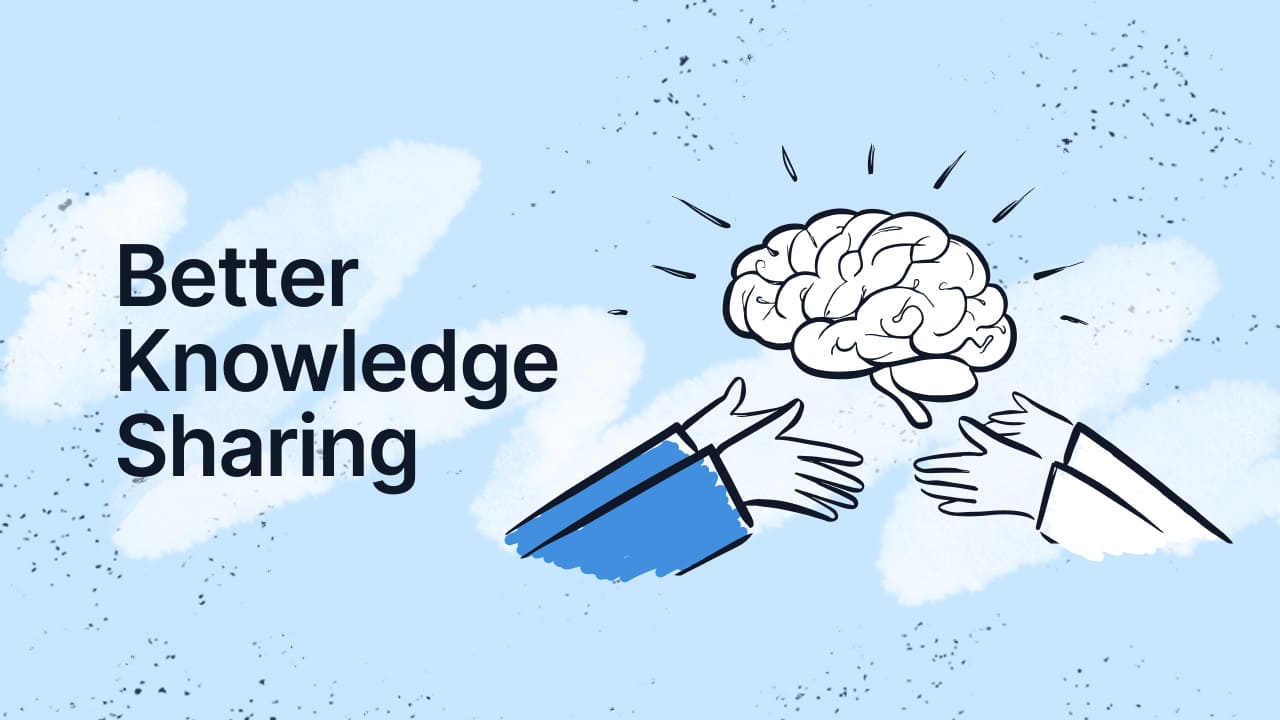Big data has the potential to transform how organizations manage and apply knowledge in their projects, helping teams make better decisions, improve project outcomes, and foster continuous learning. But how exactly do these two concepts—big data and knowledge management—come together in a meaningful way? And what role does project learning play in connecting the dots?
This article explores these questions, starting with essential definitions, then diving into the impact big data has on KM, and concluding with the key aspects of project learning that link these two powerful tools.
What is knowledge and knowledge management?
Before discussing the relationship between big data and knowledge management, it’s important to define what we mean by “knowledge” and how it is applied in business settings.
Knowledge: the foundation of decision-making
Knowledge encompasses a combination of data, experience, insights, and context. It is not simply raw information but the result of filtering and processing that data to make it useful. In organizations, knowledge plays a critical role in decision-making, problem-solving, and strategy development.
- Implicit knowledge: The personal, experiential knowledge that is difficult to express or document. It's gained through experience and usually exists within people’s minds.
- Explicit knowledge: Formalized knowledge that can be easily written down, codified, and shared. This type of knowledge exists in manuals, databases, reports, and other structured formats.
Both types of knowledge are essential in project-based organizations, where lessons learned from one project are often applied to others. Effective KM practices help ensure that knowledge is properly captured, stored, and transferred across teams and projects.
Organizations that use KM effectively often develop a competitive advantage by leveraging institutional knowledge, avoiding the repetition of mistakes, and fostering innovation.

What is big data?
Big data refers to large, complex data sets generated at high speed from various sources, including sensors, transactional records, social media, and more. It is typically characterized by the following:
- Volume: The sheer amount of data collected and stored is massive.
- Velocity: Data is generated at high speed, often in real-time or near real-time.
- Variety: The data comes from many different sources and exists in various formats, both structured (e.g., databases) and unstructured (e.g., videos, social media posts).
Big data concerns not only the quantity of data but also how it can be analyzed and used to gain valuable insights that drive business decisions. Modern big data tools and analytics allow organizations to process and analyze vast amounts of information that were previously too complex to manage manually.
The importance of big data in business operations
Big data has become an essential asset for organizations looking to enhance their operations, particularly in decision-making, customer relationship management, and project management. Analyzing large data sets gives businesses insights into trends, customer behavior, and performance metrics.
For example:
- In retail, big data can be used to track customer purchasing behavior and predict future buying trends.
- In project management, big data can be used to monitor project progress, identify bottlenecks, and make more informed decisions.
However, big data isn't just about large data sets. It’s about extracting valuable insights from this data to inform decision-making and improve processes. For example, analyzing big data allows companies to predict market trends, optimize supply chains, and even enhance customer experiences by tailoring products and services to individual needs.
How big data is used in organizations
- Predictive analytics: By examining historical data, companies can predict future trends, enabling better decision-making in areas such as project timelines, resource allocation, and risk management.
- Real-time decision-making: With big data tools, organizations can respond to changes in their environment in real-time, adjusting strategies and operations to remain competitive.
- Optimizing operations: Big data helps businesses streamline processes, reduce waste, and improve overall efficiency. This is especially relevant in project-based organizations, where resource management and time optimization are crucial for project success.

Challenges of big data
Despite its potential, organizations face several challenges when dealing with big data:
- Data overload: With so much data available, it’s easy to become overwhelmed. Organizations need the right tools and strategies to filter relevant information and discard noise.
- Data quality: Not all data is useful or accurate. Ensuring the integrity of data and removing errors or inconsistencies is vital to making reliable decisions.
- Integration with existing systems: Many organizations struggle to integrate big data solutions into their existing KM systems, leading to silos of information that aren’t easily accessible across departments or projects.
Project learning and knowledge management
Before diving into how big data and KM complement each other, it’s crucial to understand the framework of project learning. Projects are fast-paced environments where learning is continuous. Effective project learning ensures that insights gained during one phase are applied to the next, creating a cycle of improvement. Six aspects shape this learning process, focusing on both people and systems:
- Learning (People): Individual learning is critical for project success. Skills, experience, and knowledge-sharing practices such as mentoring, coaching, and storytelling help transfer tacit knowledge within the organization.
- Culture (People): A knowledge-sharing culture is essential for fostering collaboration and learning. Leadership teams should encourage open communication and link individual efforts to broader organizational goals.
- Social Activities (People): Informal interactions, such as communities of practice or brainstorming sessions, play a key role in facilitating knowledge sharing. These activities allow teams to explore new ideas and solve problems collectively.
- Technology (Systems): Technology supports knowledge storage and transfer. Tools such as intranets, knowledge libraries, and communication platforms enable teams to access and share both tacit and explicit knowledge.
- Process (Systems): Effective processes are necessary to guide projects from start to finish. This includes planning, execution, and reviewing stages, with a focus on blending new ideas with established practices.
- Infrastructure (Systems): Support structures like project management offices (PMOs) and communal workspaces foster collaboration and ensure that knowledge is generated, stored, and transferred effectively.

The role of big data in knowledge management
When integrated with effective knowledge management practices, big data can enhance an organization’s ability to capture, store, and share knowledge. This is particularly important for project-based organizations, where lessons learned from one project need to be applied to the next to improve outcomes and avoid repeating mistakes.
At the intersection of big data and knowledge management lies the opportunity for transformational learning and project enhancement. Here’s how:
- Capturing insights in real time: Big data allows organizations to collect and analyze vast amounts of data throughout a project’s lifecycle. This data can be used to adjust strategies mid-project and ensure that lessons learned are applied without delay. For example, analyzing project performance metrics in real time enables teams to spot issues early and take corrective action, saving time and resources.
- Enhancing tacit knowledge through data analysis: While tacit knowledge is inherently personal and difficult to formalize, big data can help surface patterns and insights that might otherwise be overlooked. For example, data on project team behavior and performance can be used to inform future project planning, mentoring, and training programs.
- Facilitating knowledge transfer across teams: Big data enhances the accessibility of project-related knowledge by organizing and categorizing it based on relevance and context. This ensures that key insights from one project are easily transferable to the next, reducing the likelihood of repeated mistakes and promoting best practices.
- Leveraging predictive analytics for project learning: Predictive analytics, powered by big data, allows organizations to forecast challenges and opportunities in future projects. This not only helps in planning but also enables continuous learning by informing teams of potential risks before they occur.

Business intelligence, big data, and knowledge management
Business intelligence (BI), big data, and knowledge management (KM) are closely linked in their goal to transform data into actionable insights. While each concept has its distinct function. Their integration can significantly boost decision-making and learning in project-based organizations.
Business intelligence refers to the technologies and practices used to analyze data and deliver actionable information. BI tools focus on gathering and interpreting data to help businesses make better decisions. These tools allow organizations to track performance, monitor trends, and identify areas for improvement.
When used effectively, BI systems can reveal key patterns in data that inform strategic decisions. Since big data involves large, complex datasets, integrating it into BI systems allows organizations to gain deeper insights into operations, customer behavior, market trends, and more. This is particularly important for businesses seeking to stay competitive in fast-moving industries.
Through big data analytics, companies can forecast project outcomes, analyze the effectiveness of different approaches, and apply lessons learned to future projects. Predictive analytics, for example, enables teams to anticipate risks and allocate resources more effectively, ultimately leading to better project execution.
While BI tools help make sense of data, knowledge management ensures that the insights gleaned from both big data and BI are stored, shared, and applied across the organization. KM transforms data-driven insights into organizational knowledge, ensuring that key learnings from projects are preserved and made accessible to future teams.
The integration of big data and KM creates a cycle of continuous learning. Data from completed projects feeds into the KM system, allowing future projects to benefit from this collective knowledge.
Challenges and opportunities in the Interplay of KM and big data
The combination of knowledge management and big data presents both significant opportunities and notable challenges. As organizations increasingly rely on data to drive decisions, understanding how to manage and extract knowledge from big data becomes crucial.
Opportunities: Linking data to new knowledge
The power of big data lies in its ability to reveal patterns, trends, and correlations that were previously invisible. By analyzing large datasets, organizations can identify opportunities for improvement and innovation. This creates new knowledge, which can be fed back into the KM system to inform future decisions.
In project management, this means better planning, improved execution, and enhanced risk mitigation. Big data helps project teams learn from past experiences, optimize current processes, and anticipate future challenges. For example, real-time data analysis can offer instant feedback on project performance, enabling teams to adapt strategies on the fly.
Challenges: Tacit Knowledge and interpretation
While big data excels at processing and analyzing explicit knowledge, it struggles with tacit knowledge—the personal, experiential insights that are harder to quantify. Many organizations face difficulties in translating the findings from big data analytics into meaningful, actionable insights. If misinterpreted or applied without considering the broader context, these insights can lead to poor decisions.
The challenge lies in ensuring that the right people are interpreting the data. Effective knowledge management practices are necessary to provide context and bridge the gap between raw data and actionable knowledge. The human element—whether through mentoring, coaching, or communities of practice—remains vital in drawing out the full value of both tacit and explicit knowledge.

Attitudinal shifts and organizational change
Another challenge is big data's disruptive nature. Its integration into KM demands a new way of thinking. Organizational leaders must foster a culture that embraces data-driven decision-making while still valuing human insight.
This requires attitudinal shifts at every level of the organization. For some, this disruption can be uncomfortable, particularly if they are used to traditional approaches to KM that focus on personal expertise rather than data analytics. Successful integration will depend on a willingness to adapt, innovate, and learn.

The future of big data and KM
Looking ahead, some speculate that big data analytics could eventually replace traditional knowledge management systems. However, in the foreseeable future, the people aspect of KM will remain critical. Big data analytics can provide valuable insights, but human interpretation is essential for ensuring that this knowledge is applied correctly.
Ultimately, the synergy between big data and KM offers project-based organizations a path to faster, smarter decision-making. These organizations can better navigate complex projects and achieve long-term success by addressing the challenges—particularly around tacit knowledge and organizational culture.

Conclusion
The potential of big data lies in its ability to link data, recognize patterns, and extract new knowledge—offering organizations invaluable insights that improve planning and execution. However, the success of this integration hinges on addressing the challenges that come with it, particularly around the interpretation of data and the management of tacit knowledge.
While some predict that big data analytics could eventually replace traditional KM, it's clear that human expertise remains essential. To fully realize the benefits of big data, organizations must maintain a focus on the people aspect of knowledge management—ensuring that data is interpreted with the right context and that the human element continues to shape how insights are applied.














.jpg?upsize=true&upscale=true&width=780&height=205&name=how-to-create-a-service-level-agreement%20(1).jpg)
